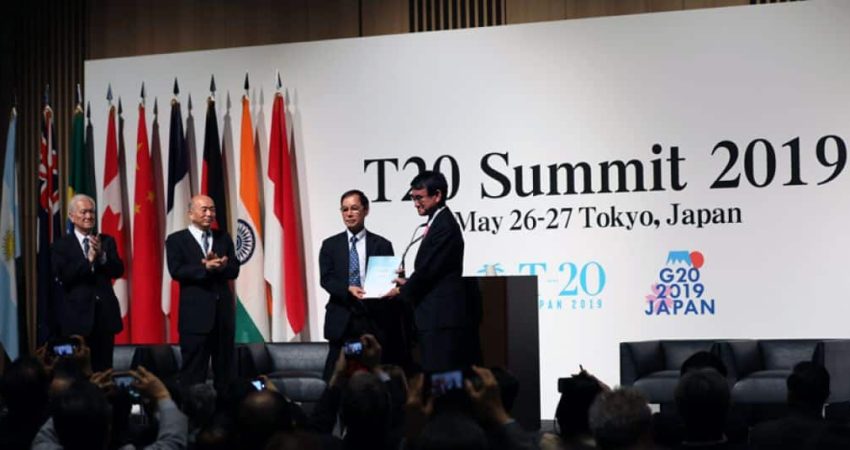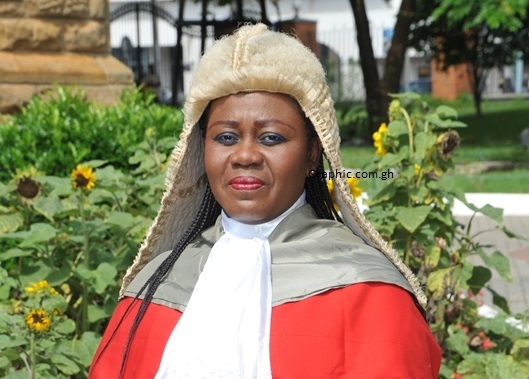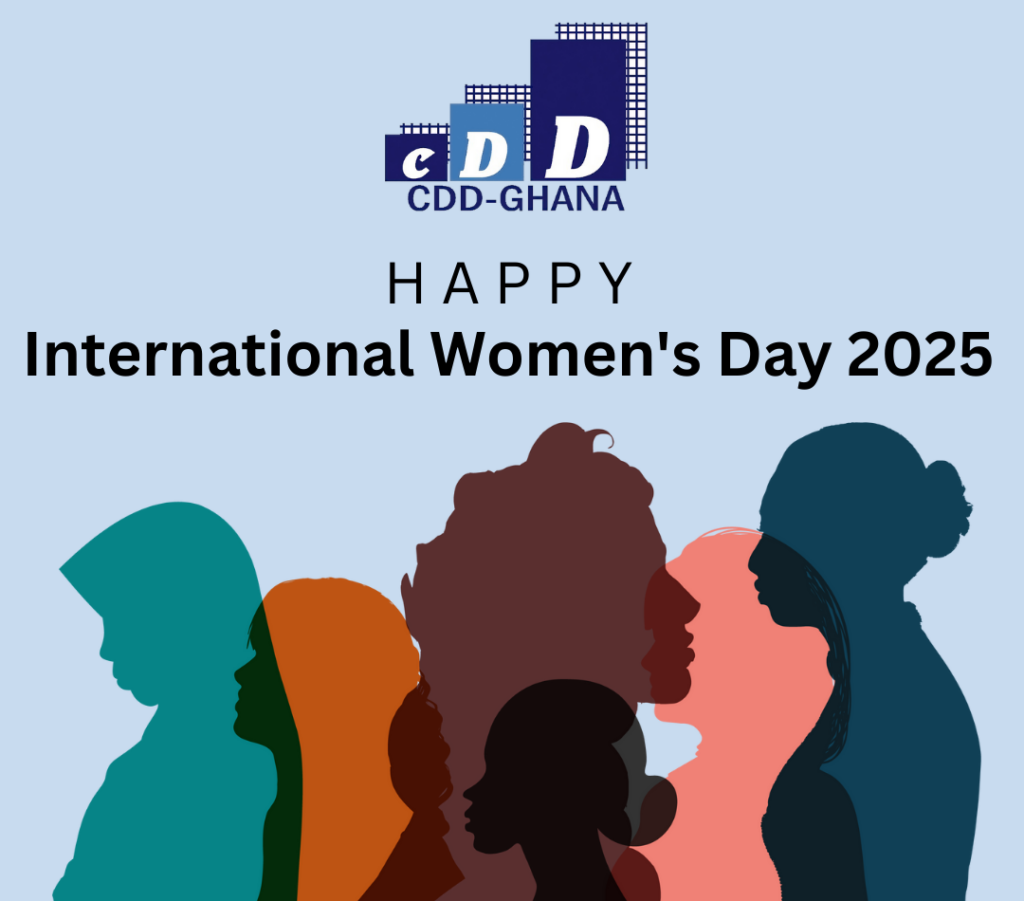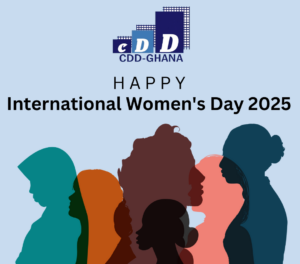T20 Summit in Tokyo: A shift in international development thinking?
By Kojo Pumpuni Asante
The Think Tank20 (T20), initiated in 2012, is the research and policy advice network of the Group of 20 countries (G20). Ahead of each G20 meeting, the task forces set up under the T20 process produce policy briefs and present key recommendations for consideration and implementation by the leaders of the G20. The T20, thus, serves as an engagement group that links empirically grounded expert-driven research to policy priorities for consideration by G20 policy officials. The T20 is one of six engagement groups of the G20 process; these include Y20 for youth, W20 for women, C20 for civil society, L20 for labour and B20 for business. In Tokyo, Japan there were over 500 participants from G20 countries and beyond highlighting the diversity of think tanks.
In 2017, during the German Presidency, an Africa Standing Group (ASG) was formed under the T20 process. The objective was to ensure that African issues were not left out in the G20 discussion but to also engage with non-Africa specific issues that can have an impact on Africa. The group brings together Africa think tanks as well as think tanks in G20 countries interested and working on Africa. Since its formation, the Africa Standing Group has had a separate task force on Cooperation with Africa under the T20 process that has allowed for focused discussion on Africa concerns. In addition, the ASG serves as a monitoring mechanism to track consideration of Africa related issues on the G20 agenda and the fit with existing continental priorities like the Africa Union Agenda 2063. The task force was adopted for both the Argentinian and Japanese presidencies.
The theme of T20 Japan was “Seeking a Sustainable, Inclusive and Resilient Society.” The theme under the Japanese Presidency does reflect the general sentiments and uncertainties of a changing world order. The last decade has witnessed a growth in populism, nationalism, authoritarianism, political polarization, policy paralysis, polarization around social norms and the dominant global rules of the game, the neo-liberal economic order is being heavily contested. The irony is that some of harshest critique and rejection has come from ‘inside the belly of the beast’, in America and Europe. The theme chosen by Japan reflects the introspection and intense search for answers and direction. What is certain is that Japan recognizes the search for global wellbeing cannot rely on “mere economic growth” as the Communiqué released put it or just Gross Domestic Product (GDP), but a deep commitment to social cohesion and sustainability. But does the discussions in Tokyo suggests that there is a shared understanding of this reality and pathway, and what role and implications are there for Africa?
To go beyond “mere economic growth” the T20 is recommending a deep commitment to supporting the SDGs as a way of tackling inequality, poverty, gender equity, climate change and impact of technological change, to ensure ‘no one is left behind.’ An important focus for the coming year is to support the financing of Universal Health Care systems, STEM education, as well as early childhood education. Another component of the investment in human capital is to focus on supporting SMEs in getting the needed capacity for building businesses in the digital age. A complimentary investment is on quality infrastructure that would sustain businesses and wealth creation.
These key issue areas are generally relevant for Africa but there were some specific areas of emphasis. Certainly, the concern about the twin challenge of debt sustainability and domestic revenue mobilization grows. It is clear that there is not a lack of funds available to fund development in Africa but there is a clear concern as to whether Africa countries are taking on more debt than they can manage and are not investing resources in productive ventures that can generate a good return. For example, Brahima Coulibaly of Brooking Institute puts the total available capital in developed countries at $83 Trillion, out of which Africa needs 0.01% to finance its infrastructure. So capacity is needed to support African countries to sieve through all these credit proposals and manage their debt effectively. The other issue of more specific interest to Africa has been illicit financial flows and the mobilization of tax revenues from multinationals. In the era of the digital economy, the focus is to ensure that taxation of digital products works for Africa, especially profit allocation for multinationals.
Overall, the discussions at T20 Japan reflected key global concerns and specific African issues. What was missing though were the Africa institutions themselves. The Africa Union and other regional bodies were not there nor was the United Nations Economic Commission for Africa. Though the keynote for the opening session was given by Amina Mohammed, Cabinet Secretary for Sport and Culture of Kenya and an experienced and knowledgeable person on WTO rules, the absence of such key Africa representation was felt. It is possible they will be at the G20 itself but the preparatory work and constituencies that need to be engaged are many and Africa institutions must expand and intensify their efforts if we want to keep the issues on the table. In essence, you have to keep repeating yourself at every forum and platform for the message to get through. The 7th edition of the Tokyo Conference on African Development (TICAD) presents another opportunity and platform to pursue these issues and Africa institutions should step up their preparation. Fortunately, it would be co-organized with the African Union Commission.
There is also a sense that though the right focus and language is being used, the global society is yet to learn lessons from the globalization fall-out. How committed are countries to balancing economic growth objectives with social cohesion? Are they prepared to fundamentally change the development paradigm or just plan to tweak it? As they say talk is cheap, we will have to see what developed and developing countries do in action in the coming months and years, particularly at the G20 Summit this week. If there was a shift at all in international development thinking in Tokyo, it was very small. Next stop is Riydah when Saudi Arabia takes the Presidency.
Kojo Pumpuni Asante is Director of Advocacy and Policy Engagement at the Ghana Center for Democratic Development and a member of the T20 Africa Standing Group
















